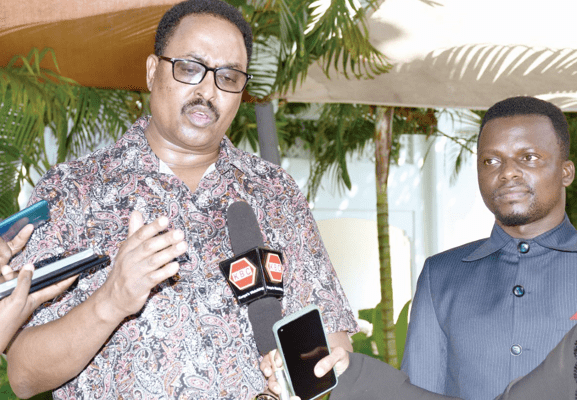
Limitation to access to resources poses a challenge to counter regional security issues, IGAD says.


The Intergovernmental Authority on Development (IGAD) has recognized resource constraints as a significant obstacle impeding efforts to address transnational security threats in the region.
While addressing a High-Level Forum on the IGAD Regional Cooperation and Coordination Mechanism (RCCM) against Transnational Security Threats in Mombasa, IGAD Executive Secretary Workneh Gebeyehu highlighted the increasing dangers presented by terrorism, human trafficking, cybercrime, and the illicit arms trade among member states.
“Our region, home to over 300 million people, is rich in diversity and potential. Yet it faces challenges that transcend borders,” he said.
He sounded the alarm on the sharp rise in organised crime across the region, noting that reported incidents have increased by 30 per cent in recent years.
“This trend is a stark reminder of what is at stake. The global cybercrime economy alone is valued at US$9.5 trillion annually or US$793 billion monthly, as of 2024. This highlights the immense scale of the challenges we must confront together,” Gebeyehu said.
Kenyan Ambassador to Djibouti George Macgoye echoed the call for regional cooperation.
Gebeyehu commended IGAD’s collaboration with the European Union, which has provided over €10 million (approximately Sh1.4 billion) through the Africa Peace and Security Architecture.
“As we move towards operationalising the RCCM (Regional Cooperation and Coordination Mechanism), I urge member states to ratify and domesticate the Statute swiftly. We must empower our national focal points with the necessary resources and authority to act decisively,” Gebeyehu urged.
He called for a future where regional security challenges are tackled collectively through shared solutions, emphasising coordinated intelligence and joint operations.
“Imagine a region where coordinated intelligence dismantles criminal networks and regional cooperation serves as a global model. Let us fully utilise the tools provided by the RCCM and frameworks for joint planning and operations to achieve real, measurable change,” Gebeyehu noted, underscoring the need for urgency and commitment from IGAD member states to address shared security challenges through strengthened collaboration and sustainable partnerships.
By Hussein Waiyaki
